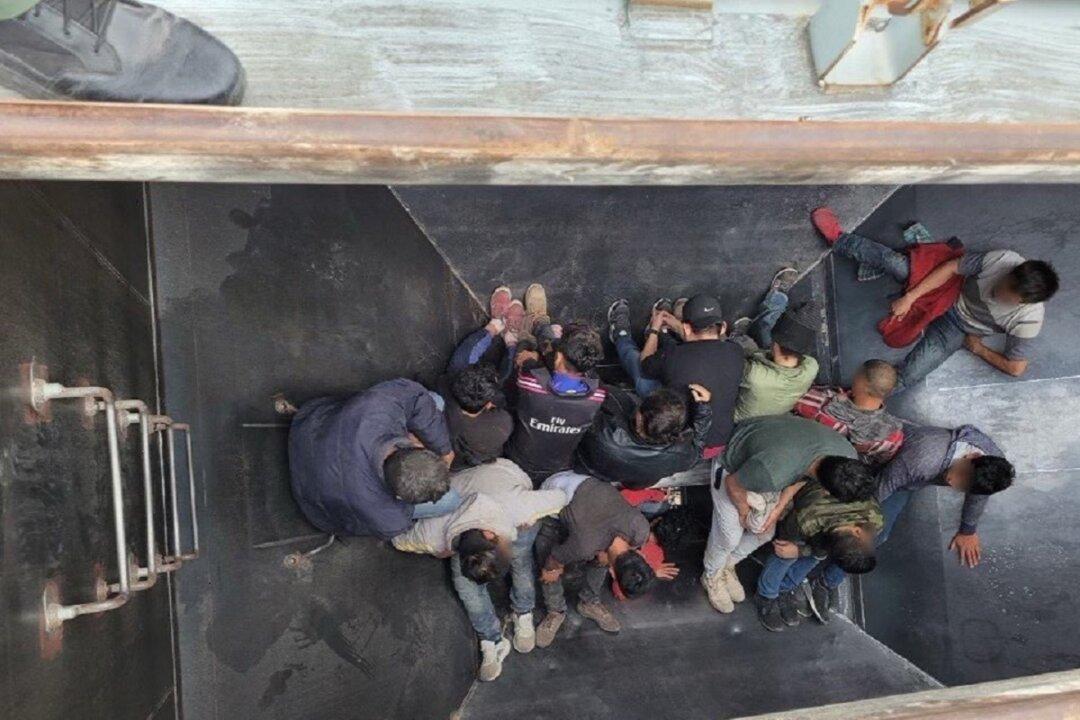
Migrants were found packed in three railcars in Uvalde, Texas, near the U.S.-Mexico border, on April 9, 2021. Border Patrol
More than two dozen illegal immigrants were found in railcars in Texas near the U.S.–Mexico border, U.S. officials said April 9.
The 25 stowaways were packed into three grain hoppers in Uvalde, which is west of San Antonio and roughly 30 miles from the border.





